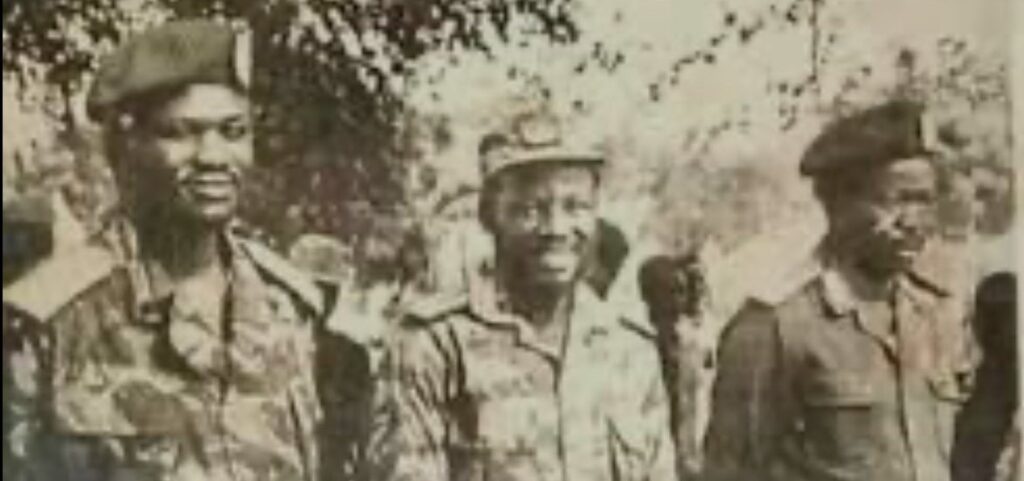On August 28, 1991, the Sudan People’s Liberation Movement (SPLM) split, marking a defining moment in the history of South Sudan. The split was not simply a struggle for leadership; it exposed the structural and intellectual contradictions that shaped the movement from its inception, and which have continued to haunt the independent state to this day.
The SPLM raised lofty slogans: a modern state based on citizenship rather than tribe, law rather than loyalty, institutions rather than individuals. But the reality was different. The movement remained bound to military logic and primary loyalties. No internal institutions were built to absorb dissent, no mechanisms created to regulate leadership transitions. Every political disagreement turned into an armed split, every personal ambition translated into ethnic mobilization.
Since 1991, division became the recurring mechanism of managing disputes. Even when the 2002 reconciliation ended the split and paved the way for the Comprehensive Peace Agreement, it was more a political settlement than an institutional reform. The root causes remained untouched: dual loyalties, the absence of institutional channels for voice, and the army functioning as a patchwork of competing allegiances.
When independence came in 2011, the state was born carrying this legacy. By 2013, disputes within the ruling party had no institutional or constitutional framework for resolution, leading to civil war that quickly acquired an ethnic dimension. After a fragile settlement, division returned in 2016, because the structural causes had not been addressed: authority without institutions, a state without a social contract, and a rentier oil economy that fueled patronage.
The result was a state trapped in a prenational structure: tribal belonging stronger than national identity, the gun stronger than the law, and power exercised as spoils rather than responsibility.
The crisis reached its peak in March 2025, when one of the country’s top leaders, serving as First Vice President, was placed under house arrest in Juba. This was not the outcome of judicial proceedings or constitutional processes, but because he had become a political burden on a system incapable of accommodating opposition within institutions or implementing its political commitments. It was the clearest sign that the dilemma of 1991 endures: disputes are still managed through coercion and exclusion, not through the frameworks of a modern state.
This long trajectory explains why the wound of Nasir has never healed. Every crisis returns to the same contradiction: the rhetoric of statehood without institutions confronted by the reality of identity without citizenship.
Every peace agreement remains procedural— ceasefires, power-sharing—without structural reforms that change the rules of the game.
The future is open to three scenarios:
- Continued authoritarian containment without reform, meaning political stagnation and sporadic violence.
- A relapse into another cycle of war, if institutions remain absent and rival power centers multiply.
- Or a difficult institutional turn: a permanent constitutional settlement, security sector reform, institutionalized party life, judicial independence, and an economy that links citizens to the state through production rather than patronage.
What South Sudan needs more than anything else is a transition from pre-national, identity driven politics to a genuine institutional state—where power is exercised through law, resources are managed for the public good, and citizens, not tribes or militias, form the foundation of political life.
Yet the deeper crisis lies in the inability of the leadership to recognize that states and parties are not run by individual decrees but by institutions. This individualistic mentality still dominates the political scene today, where the state is governed by top-down orders that bypass constitutional and consultative channels. What makes the problem worse is that some citizens accept this pattern —out of fear of chaos, from a long tradition of obedience to the leader, or because their interests are tied to patronage networks. But this acceptance does not change the truth: no state can be built on personal decrees, and no political system can be stable without institutions that regulate disputes, distribute power fairly, and operate through elections.
The wound of Nasir will remain open unless there is a fundamental shift in the consciousness of both elites and society—from submission of the authority of the individual to a belief in the sovereignty of institutions.
The writer, Samuel Peter Oyay, is a South Sudanese political activist, strategist, and commentator with over two decades of experience in governance and management. He can be reached via samualjago@yahoo.com
The views expressed in ‘opinion’ articles published by Radio Tamazuj are solely those of the writer. The veracity of any claims made is the responsibility of the author, not Radio Tamazuj.




